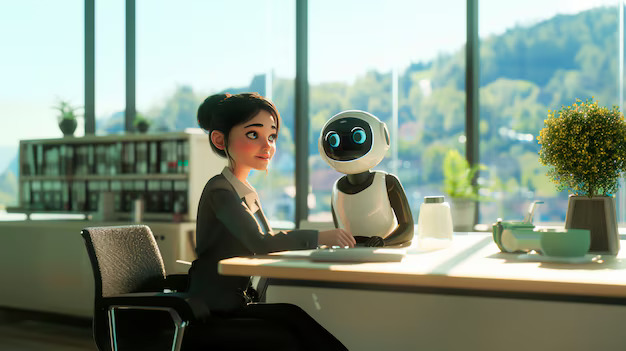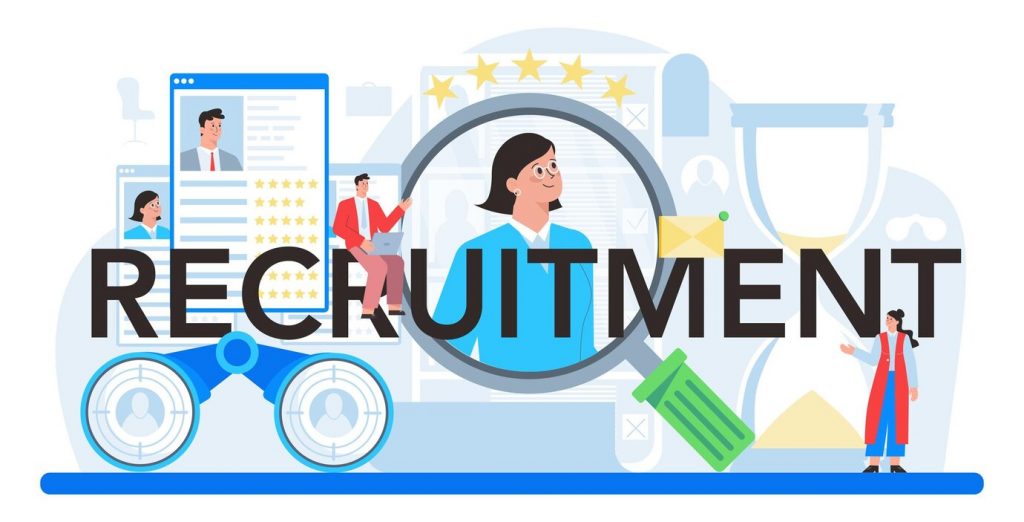Introduction
Artificial Intelligence (AI) is revolutionizing the Human Resources (HR) industry. From recruitment to employee engagement, AI-powered HR solutions are streamlining operations, improving decision-making, and enhancing workforce management. However, while automation brings efficiency, human oversight remains crucial to ensure ethical, fair, and personalized HR practices.
Striking the right balance between AI-driven HR automation and the human touch is no longer optional—it’s a necessity. Organizations that master this equilibrium can unlock unprecedented efficiency without compromising on empathy and fairness. Platforms like JobTwine are pioneering this shift by integrating AI with human expertise to create more effective hiring and talent management solutions.
The Role of AI in Modern HR
AI is reshaping HR functions by optimizing key areas, including:
- AI in recruitment and talent management: AI-powered platforms streamline hiring by analyzing resumes, conducting video interviews with facial analysis, and predicting candidate success rates based on historical data.
- Onboarding: AI chatbots and virtual assistants provide seamless onboarding experiences, answering FAQs and helping new employees integrate smoothly.
- Performance management: AI-driven analytics track employee productivity and engagement, providing HR professionals with actionable insights for performance reviews.
- Employee engagement: AI identifies patterns in employee sentiment through feedback analysis, allowing HR teams to address concerns proactively.
A notable example is JobTwine, an AI-driven hiring platform that enhances recruitment by automating interview scheduling, structuring assessments, and providing deep insights into candidate competencies.
Also Read: Best Interview as a Service Platform in 2025 – JobTwine
Key AI-Driven HR Solutions Transforming the Industry
- AI-powered resume screening reduces manual effort and speeds up the hiring process.
- Chatbots for candidate interactions improve engagement and communication.
- Predictive analytics forecast employee attrition and help HR make proactive decisions.
- AI-assisted learning and development (L&D) platforms personalize training programs for employees.
The Challenges of AI in HR
While AI offers substantial benefits, its integration into HR comes with challenges:
- Risk of losing the human element: Over-reliance on AI in recruitment and talent management can make hiring feel impersonal, leading to poor candidate experiences.
- Bias concerns in AI-powered recruitment: AI models trained on biased historical data may reinforce existing inequalities in hiring.
- Resistance to AI adoption: HR professionals often hesitate to trust AI due to fear of job displacement and ethical concerns.
A 2023 study by Harvard Business Review found that 60% of HR leaders worry that AI lacks emotional intelligence, emphasizing the need for human oversight.
Also Read: The Role of Video & Behavioral Analytics in IaaS Platforms
How JobTwine Ensures the Right Balance Between AI & Human Oversight
JobTwine is at the forefront of human-AI collaboration in HR, ensuring automation enhances rather than replaces human decision-making.
Smart AI-Driven Interviewing
- AI-powered assessments analyze candidate responses using NLP and machine learning.
- Automated interview scheduling reduces hiring bottlenecks.
Bias-Free & Ethical AI Hiring
- AI models are continuously refined to eliminate biases in recruitment.
- Transparent algorithms ensure compliance with diversity hiring standards.
Human-AI Collaboration in HR
- AI provides data-driven recommendations, but final hiring decisions remain with human interviewers.
- JobTwine’s platform enables structured interviews that combine AI efficiency with human judgment.
Data-Driven HR Decisions
- AI analytics help HR teams optimize workforce planning and employee retention.
- Predictive models anticipate hiring needs, reducing time-to-fill for vacancies
Also Read: Integrating IaaS with Job Portals: The Future of Recruitment
Best Practices for Implementing AI in HR Without Losing the Human Touch
To successfully integrate AI into HR, organizations should follow these best practices:
- Use AI as an enhancement, not a replacement: AI should handle repetitive tasks while humans focus on strategic decision-making.
- Train HR teams to work alongside AI tools effectively: Upskilling HR professionals in AI-driven analytics fosters better collaboration.
- Ensure ethical AI usage in hiring and talent management: Regularly update AI models to mitigate biases and improve fairness.
- Conduct regular audits of AI-driven HR processes: Ongoing assessments help maintain transparency and accuracy in AI recommendations.
The Future of AI in HR – What’s Next?
AI Trends Shaping the Future of HR
- Hyper-personalization of HR functions through AI-driven employee experience platforms.
- AI-powered diversity and inclusion tools to reduce unconscious biases in hiring.
- Real-time AI coaching for employee skill development and career progression.
The Evolving Role of AI-Powered Platforms Like JobTwine
JobTwine is continually innovating to refine AI-driven HR automation while preserving human oversight, ensuring organizations maintain the perfect balance between efficiency and empathy.
Predictions for AI and Human Synergy in HR Operations
- AI will become a strategic HR partner, handling data-heavy tasks while humans focus on decision-making.
- AI-powered HR solutions will be deeply integrated with employee wellness programs, boosting retention and engagement.
- Regulatory frameworks will evolve to standardize ethical AI use in hiring.
Also Read: What is Interview as a Service? A Complete Guide for Recruiters
Conclusion
AI is a powerful tool in HR, but its impact depends on how organizations wield it. A well-balanced approach, where AI enhances rather than replaces human judgment, is key to unlocking the full potential of AI in HR.
As AI-powered HR solutions like JobTwine continue to evolve, companies that embrace human-AI collaboration in HR will gain a competitive edge. To explore how AI can transform your hiring process without losing the human touch, visit JobTwine today.
Frequently Asked Questions:
What are the biggest benefits of AI in HR?
AI improves efficiency, reduces hiring bias, enhances employee engagement, and provides data-driven insights for better HR decision-making.
How does AI help in recruitment and talent management?
AI automates resume screening, structures interviews, and provides predictive analytics to improve candidate selection and reduce hiring time.
What are the ethical concerns of AI in HR?
The primary concerns include AI bias in recruitment, lack of transparency in AI-driven decisions, and potential job displacement in HR roles.
How can HR teams ensure AI does not replace human oversight?
By using AI as a support tool rather than a decision-maker, HR professionals can ensure fairness and maintain a human touch in HR processes.
What is the future of AI in HR?
AI will continue to play a crucial role in HR, from personalized employee experiences to advanced workforce planning, while human oversight remains essential to ethical AI use.




